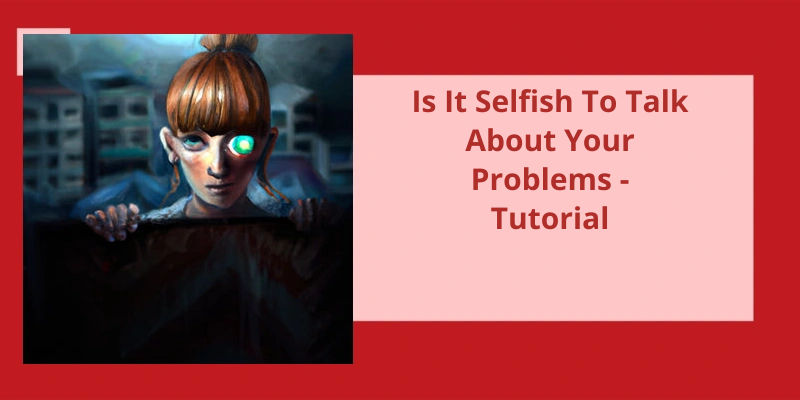As humans, we experience a wide range of emotions every day, from joy and excitement to sadness and disappointment. However, there may be times when we feel indifferent or disconnected from the world around us. Perhaps we find ourselves not really caring about things that used to matter to us, or simply lacking the motivation to engage in activities we once enjoyed. This state of apathy can be troubling and difficult to understand, as it goes against our natural inclination towards curiosity and enthusiasm. While it may be tempting to dismiss apathy as a temporary mood or personality trait, it’s important to recognize that it can be a sign of deeper mental or physical health issues. In this article, we will explore the complex nature of apathy and the various factors that may contribute to it’s development.
What Are the Characteristics of Indifferent People?
With so many entertainment options and constant distractions, we can become numb to the world around us and lose our ability to empathize with others. Another cause may be fear or insecurity. Indifferent people may be afraid to get too attached to something or someone because they fear the potential pain of loss or rejection. They may also feel overwhelmed by the emotions that come with caring deeply about something.
Indifferent people also tend to be self-centered. They prioritize their own desires and needs over those of others, which can lead them to appear selfish or unempathetic. They may also lack a sense of purpose or direction in their lives, which can make them feel disconnected from the world around them. This can contribute to their indifference and make it difficult for them to find meaning or happiness.
Another characteristic of indifferent people is a lack of curiosity or interest in learning new things. They may be content with their current knowledge and see no need to expand their horizons or explore new ideas. This can limit their growth and development and make it difficult for them to adapt to new situations or challenges.
Despite these negative traits, it’s important to remember that indifference isn’t always a bad thing. In some cases, it can serve as a coping mechanism or a way to protect oneself from harm. It may also be a sign of emotional exhaustion or a need for rest and rejuvenation. However, if indifference becomes a persistent pattern, it can have negative consequences for both the individual and those around them. It’s important to recognize and address indifference when it arises in order to lead a fulfilling and meaningful life.
The Effects of Indifference on Relationships
Indifference can have negative effects on relationships. When one partner becomes indifferent, it can lead to feelings of neglect, isolation, and resentment in the other partner. This can erode trust and lead to a breakdown in communication and intimacy. It’s important to actively show interest and affection towards your partner in order to maintain a healthy and happy relationship.
The feeling of indifference can be overwhelming and may leave a person feeling powerless. This can be particularly true when it comes to problems that seem larger than an individual can handle, such as those facing families, communities, countries, and the world. It’s important to recognize that indifference doesn’t necessarily mean lack of care and concern, but rather a feeling of being unable to make a difference. In the following section, we explore some of the common causes of indifference and how it can be overcome.
What Makes a Person Indifferent?
Indifference also occurs when we feel disconnected from the people and the events unfolding around us. We may become so focused on our own lives and challenges that we forget to pay attention to what’s happening around us. In todays fast-paced world, people often feel that they don’t have enough time to engage with the world around them. They may be so preoccupied with work, social media, or personal pursuits that they become oblivious to the needs and concerns of others.
Another factor that contributes to indifference is the belief that change isn’t possible. We may believe that the problems we face are too big, too complex, or too entrenched to be solved. This can be especially true when it comes to social or political issues, where the problems may seem insurmountable. As a result, we may choose to disengage and opt out of the conversation or the action.
When we fail to put ourselves in someone elses shoes, we may not grasp the full extent of their suffering or their challenges. This can make it hard for us to feel motivated to take action. Additionally, when we’re exposed to negative news or stories repeatedly, we may become desensitized to it. This can lead to a sense of complacency or apathy.
We may be afraid of taking risks, of facing rejection, or of being judged by others. These fears may prevent us from reaching out to those in need or from speaking up against injustice. We may also fear that our efforts won’t be appreciated or acknowledged, which can lead us to feel disillusioned and discouraged.
Examples of How Indifference Can Manifest in Different Situations (e.g. At Work, in Relationships, Towards Social Issues)
- Not responding to emails or messages at work
- Ignoring co-workers when they need help or support
- Disregarding the opinions or concerns of others in a relationship
- Choosing to stay silent instead of speaking up about important social issues
- Not taking action to help those in need or who’re suffering
When apathy sets in, it can be difficult to summon the necessary energy to engage in activities that previously brought joy and fulfillment. The lack of feeling or emotion can seep into all aspects of life, leaving a sense of detachment and disinterest in the world around you. Let’s explore the causes and potential strategies for overcoming apathy.
What Does It Mean When You Are Indifferent to Everything?
This emotional bluntness can take a significant toll on your mental health, leading to a sense of emptiness or disconnection from reality. It’s important to recognize the signs of apathy early on, as the longer you leave it untreated, the more difficult it’s to overcome.
One possible cause of apathy is depression, which can be brought on by chemical imbalances in the brain, significant life changes, traumatic events or other factors. Likewise, it may also be brought on by the long-term abuse of drugs or alcohol, or as a result of physical or emotional burnout.
One of the challenges of apathy is that it can be difficult to detect. People who’re feeling indifferent might not realize the extent to which they’re disconnected from the world around them until they’ve lost touch with their own motivations and interests. Some signs of apathy may include a lack of motivation, a lack of interest in socializing or doing something new, or a persistent feeling of boredom or unhappiness.
If you suspect that you’re experiencing apathy, the first step is to seek professional help. A mental health professional can help you to pinpoint the underlying cause of your apathy and develop a treatment plan to help you overcome it. Depending on the severity of your condition, this may include a combination of medication, therapy and lifestyle changes.
Taking up new hobbies or learning new skills can be an effective way to develop a sense of purpose and reconnect with the world around you. Likewise, working to establish a healthy sleep routine and engaging in regular exercise can improve your overall mental health and wellbeing.
The key to overcoming apathy is to be patient and persistent in your efforts. Recognize that there’s no quick fix or easy solution to this complex problem, but if you’re willing to put in the work, you can regain a sense of purpose and motivation and take control of your life once again.
As we navigate through life, we often encounter situations or topics that we feel strongly about. However, it’s impossible to have strong opinions about everything, and sometimes, being indifferent can be beneficial. Indifference isn’t necessarily a negative trait and can even be a strength in certain circumstances. In this article, we’ll explore the idea of indifference and whether it’s acceptable in different scenarios.
Is It Acceptable to Be Indifferent?
However, there’s a fine line between healthy indifference and apathy or complacency. Apathy is a complete lack of interest or concern, while complacency is being satisfied with the status quo and not pushing oneself to improve or make a difference. Both can be harmful to personal growth and society as a whole.
Indifference can also be culturally dependent. Some cultures value emotional expressiveness and passion, while others prioritize emotional restraint and detachment. It’s important to be aware of ones cultural biases and recognize that there’s no universal standard for what constitutes acceptable levels of indifference.
In some situations, indifference can be a coping mechanism. For example, if someone is faced with overwhelming feelings of grief or fear, they may temporarily become indifferent to their surroundings or relationships as a way to protect themselves. However, this shouldn’t be a long-term solution and seeking professional help may be necessary to process the emotions.
Ultimately, the acceptability of indifference depends on the context and individual. It’s okay to prioritize ones passions and not expend energy on things that don’t bring joy or fulfillment. However, it’s important to remain conscientious of the impact of ones actions (or lack thereof) and not use indifference as an excuse for inaction or complacency.
It’s acceptable to be indifferent to some things, but it’s important to maintain a level of engagement with the world and to avoid apathy or complacency.
The Psychology Behind Indifference: Exploring the Cognitive and Emotional Processes That Lead to Feelings of Indifference.
- Emotional numbness
- Psychological detachment
- Physical exhaustion
- Lack of interest
- Disconnection from reality
- Dulling of senses
- Attention deficit
- Overwhelmed by too much information
- Defense mechanism
- Depression
However, it isn’t just limited to these physical actions and can also manifest in emotional or intellectual disengagement from a situation or person. In this article, we will delve deeper into the concept of indifference, it’s effects, and how to recognize and deal with it.
What Is an Example of Someone Being Indifferent?
Failing to acknowledge the presence of someone else. Ignoring someone who’s speaking directly to you. All of these actions can be considered forms of indifference, as they demonstrate a lack of interest or concern for the other person.
Indifference can manifest in a variety of ways in different situations and contexts. For example, a teacher may be indifferent to the needs of their students if they consistently fail to provide personalized instruction or support, or if they fail to listen to their concerns. In a workplace setting, an indifferent boss may fail to provide opportunities for professional development or may overlook the contributions of their employees.
For example, in the face of great suffering, some individuals may become indifferent as a way to protect themselves from the emotional pain of empathy. However, this type of indifference isn’t necessarily a positive or healthy response, as it can lead to a lack of connection with others and a disregard for their needs and well-being.
When individuals fail to show compassion or concern for others, it can lead to a breakdown in trust and connection, and can contribute to feelings of isolation and alienation. Conversely, when individuals choose to act with kindness and compassion, it can have a positive impact on the well-being of themselves and others, creating a happier and more cohesive community.
However, regardless of the reasons behind it, indifference is a problem that can have real consequences, both for those who experience it and for the larger community. By recognizing the ways in which indifference manifests and working to combat it, we can build stronger and more compassionate relationships and communities.
Source: Indifference
As humans, we all seek validation and engagement from those around us. However, it’s inevitable that we encounter people who’re indifferent towards us or our actions. In such situations, it’s important to use our awareness skills and identify how we truly feel about the situation. It’s natural to feel hurt by it, but there are several ways to deal with indifference without letting it affect our emotional well-being. So, let’s take a look at some effective strategies for dealing with an indifferent person.
How Do You Deal With an Indifferent Person?
Disconnected? Frustrated? Knowing your own emotional response can help you approach the situation with empathy and understanding. Consider the reasons why the person may be indifferent. Perhaps they’re dealing with personal issues or simply have different priorities. Recognizing the potential underlying factors can help you avoid taking their behavior personally.
It may also be helpful to communicate openly and assertively with the indifferent person. Express your concerns or feelings in a non-judgmental way and listen to their perspective. Avoid blaming or attacking language and focus on finding a solution or compromise. Keep in mind that some people may simply not be capable of reciprocating the level of emotion or interest you’re seeking. Accepting this reality can help you release expectations and manage your own emotional responses.
In some situations, it may be necessary to disengage from the person who’s displaying indifference towards you. This is particularly important if their behavior is consistently harmful or affecting your well-being. This may involve setting boundaries, limiting contact, or even ending the relationship altogether. Making the decision to separate from someone can be difficult and painful, but sometimes it’s the best option for your own emotional health and happiness.
Another approach that can be helpful is to practice self-care. It’s important to prioritize your own needs and well-being, even when dealing with an indifferent person. Take time for activities that bring you joy and fulfillment, connect with supportive friends or family members, and seek professional guidance if necessary. Building up your own emotional resources can help you better handle challenging relationships.
Strategies for Managing Your Own Emotions When Dealing With an Indifferent Person
- Focus on your own feelings and reactions
- Practice deep breathing or meditation to calm yourself
- Acknowledge and accept the other person’s indifference
- Set boundaries and communicate clearly
- Engage in self-care activities to manage stress and anxiety
- Seek support from a therapist or trusted friend
Conclusion
In conclusion, feeling indifferent about everything can be a debilitating experience for many people. It can be challenging to overcome, as it often robs people of the motivation to do anything at all. However, seeking professional help and taking action to address the underlying cause can be a vital step in fighting apathy and reclaiming a sense of purpose and excitement for life. Ultimately, it's important to remember that apathy is a treatable condition, and no one should have to live with it indefinitely.






